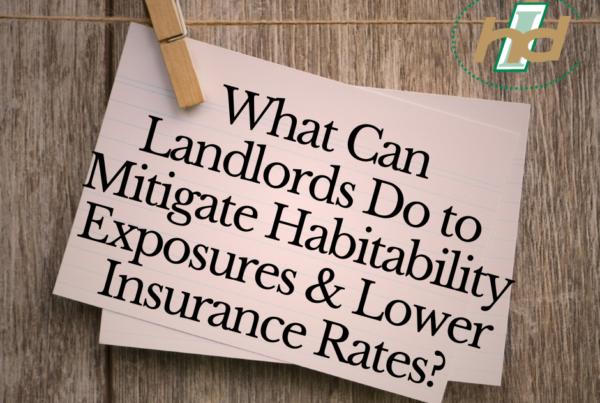
(You Don’t Know What You Don’t Know)
Liability Insurance is a troubling subject to some, and with reason. Insurance companies grant rather broad protection in their insuring agreements, but then they take it away. These take-aways are found in the Definitions of certain words, policy Exclusions, and policy Conditions.
A typical insuring agreement will say something like this: The company will pay {perhaps on your behalf) those sums that you are legally obligated to pay as damages for Bodily Injury or Property Damage to Others.
The next insuring agreement may state that the insurance company will have a “duty to defend” you or will indemnify you for your defense costs. And, many insurance contracts will also state that the duty to defend you is not required if the insurance does not apply, or some will defend with a reservation of rights; most definitely, you will not be defended if your limits of coverage have been exhausted. Tip: Buy adequate limits of liability protection in the form of Excess or Umbrella protection.
And, generally, there is another insuring agreement for Personal Injury which usually provides coverage for libel, slander, malicious prosecution, and wrongful evictions, among other things. While a subject for another article, please don’t overlook the wrongful eviction coverage which is crucial for proper protection; make sure you have this extremely valuable protection.
Then, when this starts to make sense and you continue to read on, you realize you have just stormed down the rabbit hole. You have entered the world of insurance definitions, exclusions and limitations which further narrow – or expand – your coverage.
For this article, let’s look at some common exclusions in your liability insurance contract, used by one of the more widely used Apartment Building insurers, which could affect your coverage in ways you may not have considered – you don’t know what you don’t know:
- Expected or Intended Injuries Exclusion: If you do something, or fail to repair something, that can result in expected (or intended) injury, or if you do something that was done with the expectation to cause harm, there isn’t any coverage. For instance, if you refuse to repair (or slow down repairs) units for tenants whom you wish would just give notice and simply leave, and then should the tenants sue you in turn, this exclusion will be one of the exclusions your insurance company will cite when they deny your defense of this claim. Or your insurance company may provide a defense, but it may do so only under a reservation of rights, meaning the insurance company will drop this claim and deny any further defense – much less any judgment against you – if and once they discover you actually intended to create this situation. Do not overlook this exclusion, which is cited quite often in liability claims denials. *Tip: Employ professional property management and get out of the way.
- Workers Compensation: If someone is acting as a part-time, reduced-rent property manager for you, and if that person is injured and places a claim for injuries and lost income, chances are that your general liability insurance company will decline coverage and direct you to your workers compensation insurer. Do you have it? *Tip: Employ professional property management; good property managers will never let anyone work on or at your property without evidence of liability and workers compensation insurance.
- Pollution: One major apartment insurance provider offers this exclusion language: “injuries arising out of the actual, alleged, or threatened discharge, dispersal, seepage, migration, spill, release or escape of pollutants”. In the policy, there are give-backs (smoke from a hostile fire and fumes originating from HVAC equipment being the most notable). *Tip:Pay attention to this exclusion, as this is not only found on your standard general liability forms but sometimes there will be refining endorsements which further restrict and reduce any pollution coverage.
- What is a pollutant? This particular insurance company defines pollutants as any solid, liquid, gaseous, or thermal irritant or contaminant including smoke, vapor, soot, fumes, acids, alkalis, chemicals and waste. And then, waste is further defined to mean materials to be recycled, reconditioned, or reclaimed. The importance? This exclusion and the definitions of pollution, combined with specific Lead and Asbestos exclusions likely found endorsed onto your policy, completely removes any protection from tenants claiming inhalation injury if a water or other otherwise insurable claim damages older ceilings and gets into older coats of paints.
- Employment-Related Practices, often including 3rd Party offenses: This is a very important exclusion and easy to overlook. You might think that there isn’t much to this, particularly if you do not have any employees. Yet, this is where the insurance company also excludes Tenant Discrimination claims. *Tip: Employ professional property management or run out – right now – and get a Tenant Discrimination policy. This is a very important coverage, now more than ever (rent control, Covid19).
- Fungi: Sometimes related to the Pollution exclusion, this company has its own specific exclusionary language, which says that there is no coverage for any bodily injury, property damage to others arising out of the actual, alleged or threatened inhalation of, ingestion of, contact with, exposure to, existence of, or presence of any “fungi”. In this form, there are no exceptions in this exclusion for apartment owners. Fungi, as defined by this insurance company’s form, means any type or form of fungus, including mold, mildew, mycotoxins, spores, scents, or by-products released by these fungi. So, what do you do aside from selling all your real estate holdings? *Tip: If you manage your own properties or have professional property management, ensure that your properties are inspected for dampness and any evidence of mold or fungi. We suggest you establish a contract with a mold detection company for regular inspections of your properties.
Lastly, we wish to point out that all these coverages and exclusions are constantly changing, meaning in most cases further restrictions as well as some broadening of coverage. Right now, insurance companies have filed – and in some cases received affirmative acceptance by the Department of Insurance – for changes to these policies in the area of Habitational Claims restrictions (we used to call these claims “failure to maintain” premises actions in the ‘90s). These claims have come back, most explosively in the infestation of bed bug and the in the subsequent installation bed bug claims sub-limits. For example, you may have $2,000,000 in liability insurance, but you may only have $50,000 in coverage for bed bug infestation claims if your policy has been updated at its latest renewal.
To help protect you and provide you guidance for all of these issues, talk to your insurance agent, strongly consider professional property management if you are self-managing, and stay close to the AACSC meetings, services, and articles in the magazine. Your association is an amazing source of relevant information provided by professionals and apartment owners.



